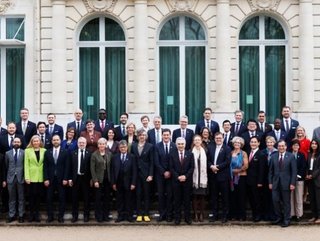IEA Kicks off 50th Anniversary with Ministerial Meeting

Celebrations continue as a key contributor to making the energy industry a better space for all heads towards its milestone 50th year.
And, in the year that marks five decades since it was founded, the International Energy Agency (IEA) has further solidified the crucial role it plays in addressing pressing global energy and climate challenges.
Ministers from around the globe gathered to discuss how the agency will continue with its mission in the coming years, and lay out new pathways to ensure outcomes campaigned for on the global stage at COP28 can be worked toward in line with international targets, and set forth a roadmap for the Agency's mission in the years ahead.
Celebrating 50 years of the IEA
Co-chaired by Irish Minister for Environment, Climate and Communications Eamon Ryan and French Minister of Economy, Finance and Industrial and Digital Sovereignty Bruno Le Maire, mandates were brought forward on membership talks with India, opening a regional centre in Singapore, launching a critical minerals security programme and leading on implementation of COP28 outcomes.
In celebrating the IEA’s healthy and long-standing history, the 50th anniversary celebrations reflected the agency’s commitment to addressing current and future energy challenges through international cooperation, innovation, and sustainable development initiatives.
This included acting and reacting to the key agreements made on energy and climate issues, including new 2030 global goals – aligned with the Paris Agreement target of limiting global warming to 1.5°C – of transitioning away from fossil fuels, tripling renewable energy capacity, doubling energy efficiency progress and reducing methane emissions.
Main outcomes from the IEA’s 2024 Ministerial Meeting and 50th Anniversary
- Mandates for IEA on membership talks with India: The IEA began discussions on India's request for full IEA membership, recognising the country’s strategic importance in addressing global energy and climate challenges
- Opening a regional cooperation centre in Singapore: A new IEA regional cooperation centre will be set up in Singapore to extend the IEA’s engagement in Southeast Asia and neighbouring geographies
- Launching a critical minerals security programme: The IEA will develop a framework to enhance the security of supply chains for critical minerals which are essential for clean energy technologies
- Leading on COP28 outcomes: The IEA will play a leading role in ensuring outcomes set out at the summit at the end of last year, especially surrounding the transition away from fossil fuels, increasing renewable energy capacity, improving energy efficiency and reducing methane emissions
- Global energy security: With the threat to global energy security apparent, the IEA discussed how it would strengthen and ensure global energy security
- Boosting clean energy investment in emerging and developing economies: The IEA addressed barriers such as high borrowing costs and difficulties accessing capital and how best to ensure this is not as big a challenge moving forward
- Energy access and affordability: Emphasis was placed on advancing clean energy solutions and ensuring ways to build a more inclusive energy economy
- Acknowledging the IEA's contribution and mandates for the future: Ministers commended the IEA's significant contribution to global energy and climate policy and directed the agency to continue prioritising climate change, sustainable development and energy security in its activities and analysis
The IEA at 50
The IEA was founded in November 1974 off the back of the 1973 oil crisis, an era-defining event that resulted in physical disruptions to supplies of the fuel around the world.
And although founded as a body to ensure oil security, the IEA’s main focuses have evolved with the energy industry around it, seeing a shift to involve much more than that, like secure and sustainable energy transitions. It remains a significant player in the global energy landscape despite not being a typical or traditional contributor to the wider industry.
Nowadays, the IEA is a key provider of data and statistics on the global oil market and energy sector, putting out energy policy, information and analysis. As a crucial body in this space, the IEA promotes energy savings and conservation all while fostering technical collaboration on innovation and research between governments and companies worldwide, as well as acting as a key resource when it comes to future energy-related emergencies, much like the one that instigated its creation in the first place.
Now with around 31 member countries, the IEA was founded by 17 initial members made up of Austria, Belgium, Canada, Denmark, Germany, Ireland, Italy, Japan, Luxembourg, The Netherlands, Norway, Spain, Sweden, Switzerland, Turkey, UK and US. Thirteen nations have joined since, with another five currently going through the process of obtaining full membership
The IEA has had seven Executive Directors since its creation and is currently headed up by Turkish economist and energy expert Dr Fatih Birol, who has been in post since 2015.
*******************
Make sure you check out the latest edition of Energy Digital Magazine and also sign up to our global conference series - Sustainability LIVE 2024.
*******************
Energy Digital is a BizClik brand.






